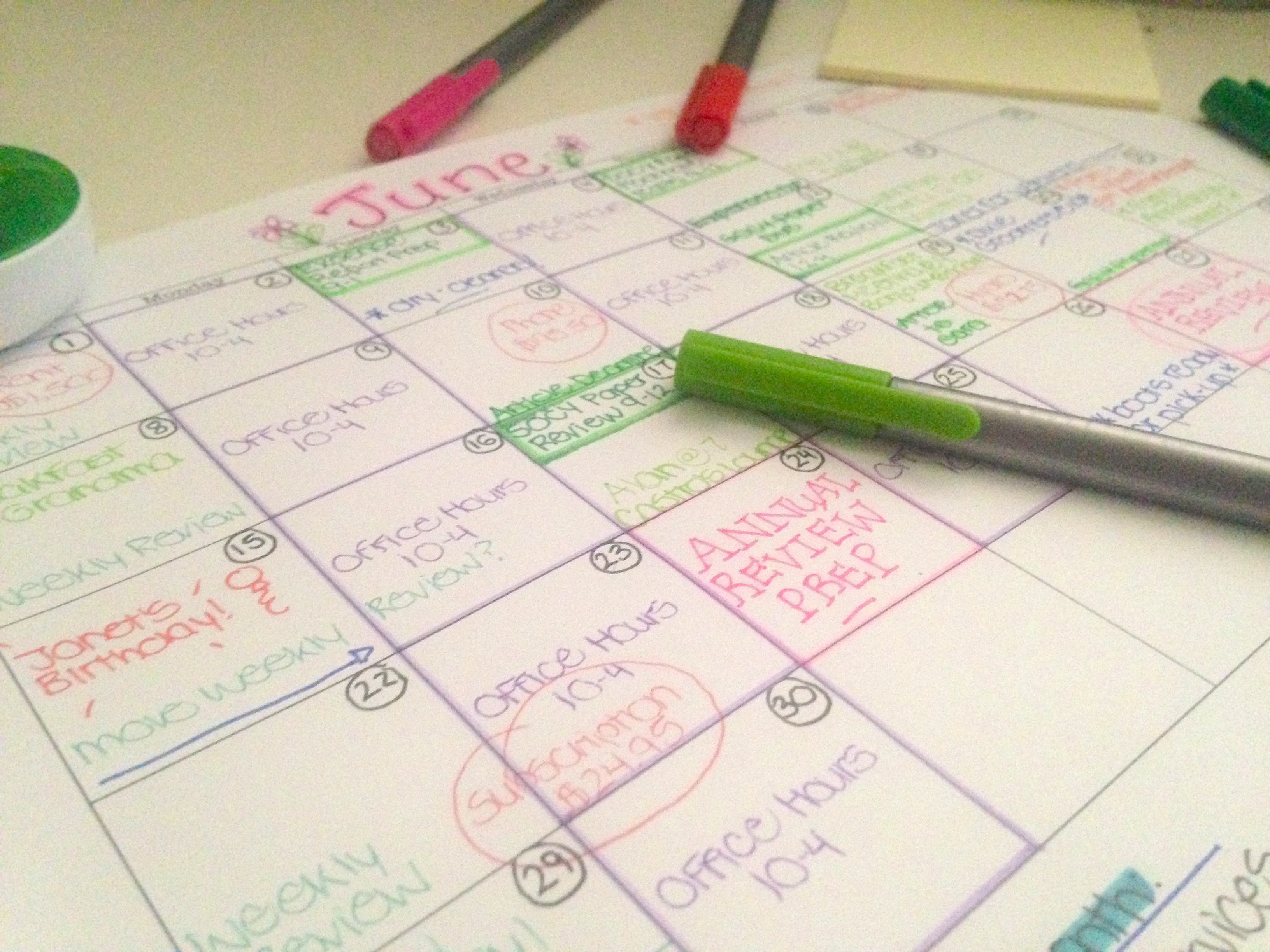
I like to think I’m pretty good at editing other people’s work- after all, it’s what I do for a living, and I got a lot of practice editing both the newspaper and yearbook in high school (yes, I know my picture is next to the entry for “nerd” in the encyclopedia). So you may not be surprised when I tell you that I ended up editing a lot of papers for my friends and classmates in high school and university as well. This is for free, mind you. I did it for the sheer joy of editing. (Again, yes. I know I’m in the encyclopedia.)
During this time one of my roommates was going through a rough patch; she was really trying to get her act together and pull up her grades so we sat down one day and went over her agenda. She showed me all of the deadlines on her schedule to see if we could coordinate some editing jobs.
At first she wanted to hand me everything the night beforehand but I told her the strategy didn’t make any sense: after I handed her back the first draft, she was going to need time for rewrites and corrections of her own. Depending on how badly she was struggling with the paper, we might want to pass it back and forth more than once; it was important to allow her the extra time she needed to let the ideas marinate without feeling the pressure of a looming deadline.
That’s when we developed the idea of a “soft” deadline- a concept that I’ve since applied to virtually every writing project I’ve worked on personally ever since its inception. Taking into consideration her workload and the other deadlines she was working towards, we created fake deadlines where she would be responsible for handing me a completed first draft of her paper so I could help her out with the corrections well before the paper was due.
Part of our contract was that I was to hold her accountable; if she didn’t hand me a completed first draft by our deadline, I was to refuse to edit it.
To reward her for her efficiency, we scheduled the fake deadlines for dates that were convenient to my schedule as well so I could ensure that I could turn around my edits promptly.
Scheduling a soft deadline for yourself allows time to let ideas flow and develop; at the very worst, it’s a way to save your own butt from procrastination, unexpected hiccups and all of those little pesky details that always seem to creep up at the end of a project and leave us feeling like we want to pull our hair out.My friend usually scheduled her soft deadlines a week-and-a-half or so before her actual deadlines; meatier projects or other things she anticipated taking longer we pushed the deadlines back to give her a two-week gap.
Based on your own workload or the nature of the project you’re working on, you may want to follow her lead and allow yourself a week or two to clean up the small tasks left over to help get it completed. For longer or more involved projects, you may want to be break larger tasks up into smaller steps, and play with scheduling more frequent, smaller soft deadlines for yourself in order to keep your work on track.
Every good editor knows that sometimes it takes a fresh pair of eyes to catch all the sticky little typos and grammatical errors in a manuscript. When we plug away at a piece of writing, or any project for that matter, it can be difficult to take a step back and look at your work with objectivity. Extra time is often required, even if it’s time to walk away and forget what you’ve been working on for a while in order to come back to it with a new perspective.
As for my friend? Well, I’m pleased to report that did she really well that semester. And she made every single soft deadline we set.
 Want even more ideas on how to manage your time more efficiently? Hop on over to the Busy section of my blog where I talk about the ways in which I’ve tried to make my life more productive. I hope they can make your life more productive, too.
Want even more ideas on how to manage your time more efficiently? Hop on over to the Busy section of my blog where I talk about the ways in which I’ve tried to make my life more productive. I hope they can make your life more productive, too.










